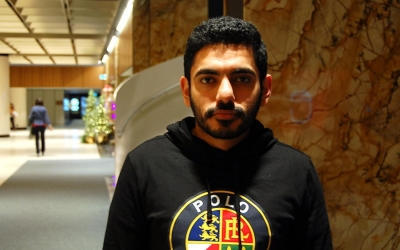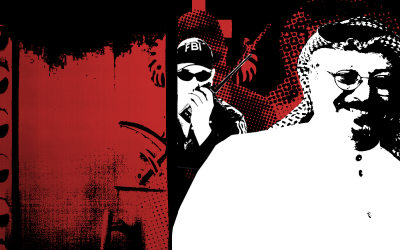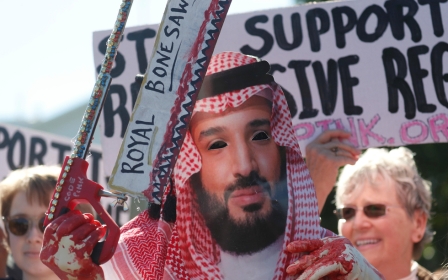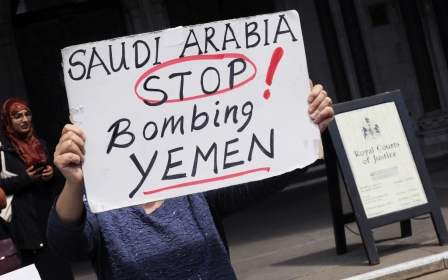Former FBI agent Ali Soufan fears Saudi government is targeting him: Report
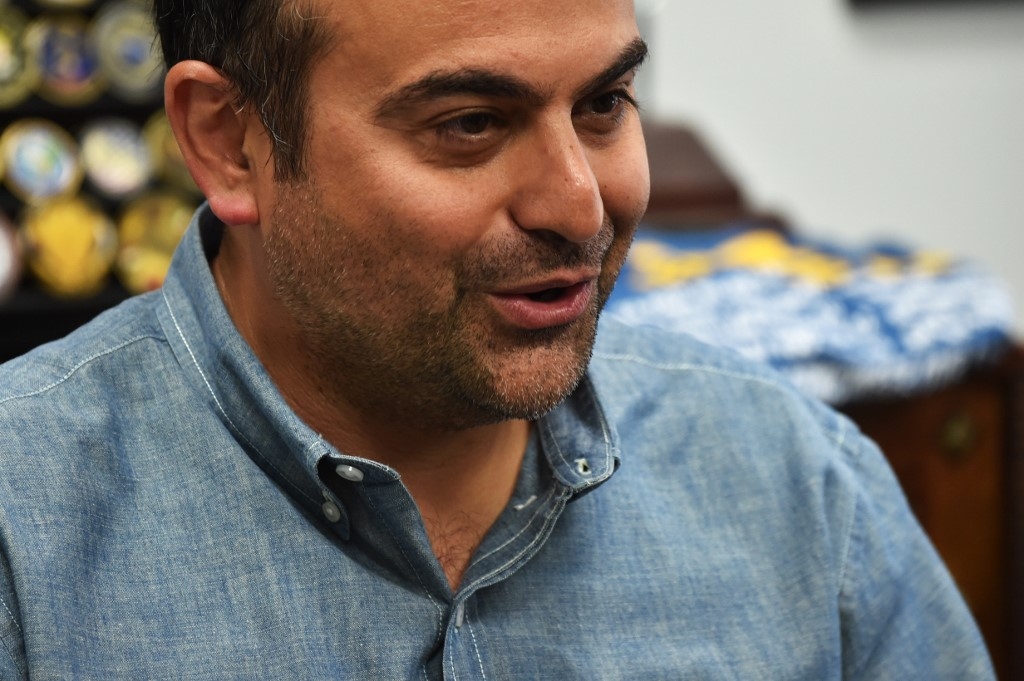
A social media campaign being waged against a former FBI agent appears to involve some of the same individuals who targeted Saudi journalist Jamal Khashoggi before he was murdered, the New Yorker reported.
Ali Soufan was contacted by the CIA in early May and informed that al-Qaeda were plotting an attack against him. Soufan, who was a lead investigator with the FBI around the time of the 9/11 attacks, was told that information collected by the agency was "specific enough" to warrant him being debriefed on the situation.
Two weeks later, a social media campaign - similar to one initiated against Khashoggi before he was killed in the Saudi consulate in Istanbul in 2018 - began targeting Soufan, the New Yorker reported.
"Mr. Ali," one Twitter user wrote, "Make yourself dead, beginning of the end."
Soufan reported the messages to the FBI and also hired private cybersecurity experts, who traced at least part of the campaign to an official in the Saudi government.
The security experts determined the campaign was launched by Hussain al-Ghawi, a self-proclaimed Saudi journalist who runs a YouTube programme that broadcasts Saudi propaganda. Ghawi was also involved in the social media campaign against Khashoggi.
In his posts on Twitter, Ghawi accused Soufan of entering into an alliance with Qatar in order to malign Saudi Arabia, and also claimed that Soufan had been given Qatari citizenship, the New Yorker said.
Soufan established a security advisory company in New York in 2005, of which he is the CEO. One of the firm's clients is the government of Qatar, which hired the Soufan Group to train some of its police and intelligence forces.
"Its purpose," Ghawi said of Soufan's company, "is to absolve Qatar of supporting terrorism."
His post was retweeted thousands of times by a legion of bots and fake accounts that had made threatening comments against him, the New Yorker reported.
Ghawi had posted similar messages about Khashoggi, which were also retweeted by a wave of unverified accounts in the months leading to the Saudi journalist's murder.
'Directly linked to Saudi Arabia'
Similarly, Omar Abdulaziz, a young Saudi activist living in Canada, has also reported a social media campaign against him, which started after he was informed by authorities of a Saudi plot to target him.
Like Soufan, Abdulaziz, a well-known critic of the Saudi government, was a friend of Khashoggi.
In December 2018, Abdulaziz told Middle East Eye that he may have come close to Khashoggi's fate months before the journalist's death, when two Saudi government agents came to Montreal, the Canadian city Abdulaziz has called home for almost a decade, to convince him to return to the kingdom.
Abdulaziz was granted asylum in Canada in 2014, and has since been tweeting and posting videos criticising the policies of the ruling family and the crown prince, particularly regarding the crackdown on his opponents that began in 2017.
He has also spoken publicly about Saudi Arabia's use of internet trolls on Twitter and his own fight against them.
Zachary Schwitzky, one of the experts hired by the Soufan Group to examine data collected about the Twitter accounts attacking the men, said the information recovered showed "classic signs of a state-supported campaign", according to the New Yorker.
Soufan told the magazine that the online threats as well as the government intelligence he had received left him concerned that both he and Abdulaziz were under attack by operatives of the Saudi government.
"Jamal was murdered by Saudi operatives," he said, according to the magazine. "The threat against Omar is confirmed by Canadian authorities to be directly linked to Saudi Arabia. It seems highly unlikely that the threat against me would not be connected, as well."
Another aspect of concern to Soufan was that the details in the social media attacks aligned with information the CIA had shared regarding the suspected al-Qaeda plot against him.
Agency officials told Soufan that he could be in danger while travelling to Qatar, where they feared he might become a target. That threat was also made in certain social media messages. The CIA said he was likely being targeted over his past work with the FBI, which the social media accounts had also suggested.
"The disinformation campaign used false narratives and dangerous imagery about me that directly aligned with elements of the threat," Soufan told the New Yorker.
Soufan added that he did not think the Saudi government would attack him directly, but he was concerned that the country could hire al-Qaeda operatives to target him instead.
"It wouldn't be the first time a state actor uses militants or terrorists to do its dirty work," he told the magazine.
The Soufan Center, an international risk-assessment think-tank launched by Soufan, said in a statement on Thursday that it was "very concerned about the recent disinformation and intimidation campaign targeting" its founder.
"We will continue monitoring this situation and hope that the ongoing investigation will make it more difficult for the entities involved to malign, harass, and threaten civil society and independent voices online in the future," said former senator Joe Donnelly, the group's chairman.
Middle East Eye propose une couverture et une analyse indépendantes et incomparables du Moyen-Orient, de l’Afrique du Nord et d’autres régions du monde. Pour en savoir plus sur la reprise de ce contenu et les frais qui s’appliquent, veuillez remplir ce formulaire [en anglais]. Pour en savoir plus sur MEE, cliquez ici [en anglais].


